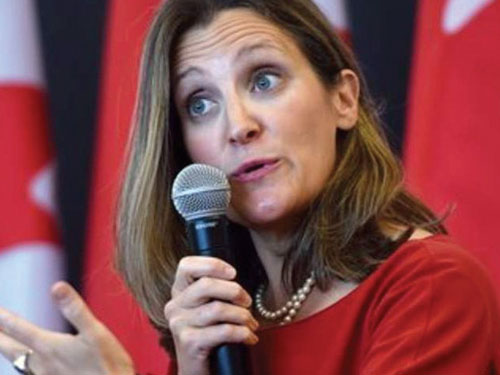After being the country to push hardest on ratification of the revised North American free trade pact, Canada will be the last to actually ratify it.
Canadian Deputy Prime Minister Chrystia Freeland, who piloted Canada through almost two years of fractious negotiations on the trilateral deal, kick-started the process by introducing legislation a few days after President Trump signed in the new US-Mexico-Canada Trade Agreement (USMCA) on January 29. “Passing the new NAFTA in parliament is our priority”, indicated Canadian Prime Minister Justin Trudeau.

The legislation needs to go through three readings and be debated by the trade committees of both the House of Commons and the Senate before receiving royal assent by Governor General Julie Payette. Only then can Ottawa formally ratify the deal.
Waiting Until Spring?
Canadian international trade lawyer Lawrence Herman has commented: “The Liberals could fast track the legislative process if they had a majority, but they don’t. It remains to be seen what would happen – but I expect it to take six weeks or maybe longer for the process to unfold.”
The smaller opposition parties, the NDP and the Bloc Québécois, are concerned over the perceived lack of specific labour protections in the deal. They also object to the omission of Canadian aluminium from the last-minute provision requiring all steel used in all the manufacturing to be “melted and poured” in North America in order to receive preferential treatment. However, more significantly, the largest opposition party, the Conservatives, has not threatened to hold up the deal but wants more details on what the government may have in mind for sectors that have allegedly been adversely impacted - notably agricultural, forestry and aluminium producers.
USMCA will not come into force until the first day of the third month, or some 90 days, after the final country, in this case Canada, formally ratifies it. All three countries will use the intervening period to meet certain obligations outlined in the agreement, including labour reforms and changes to auto rules.




